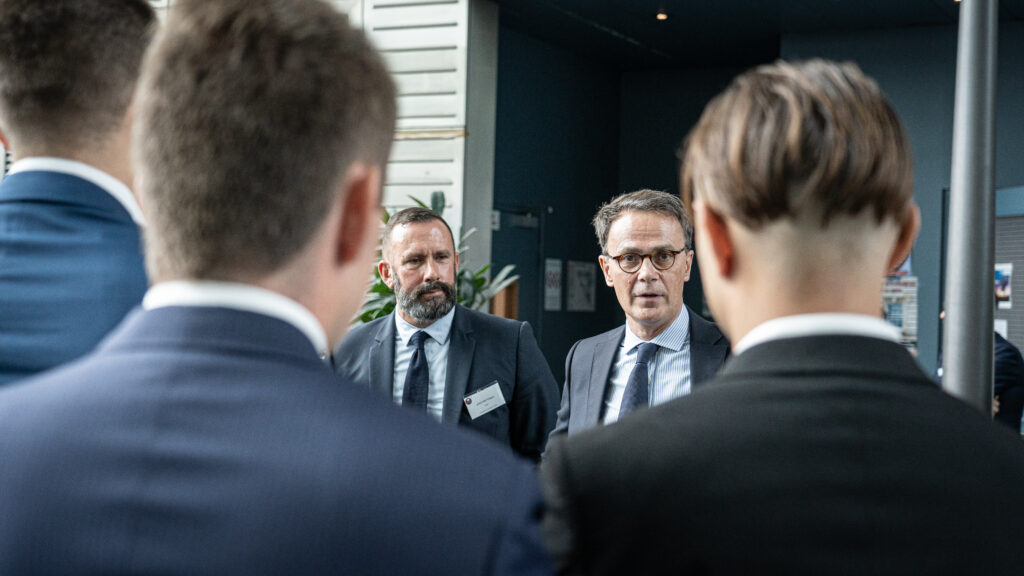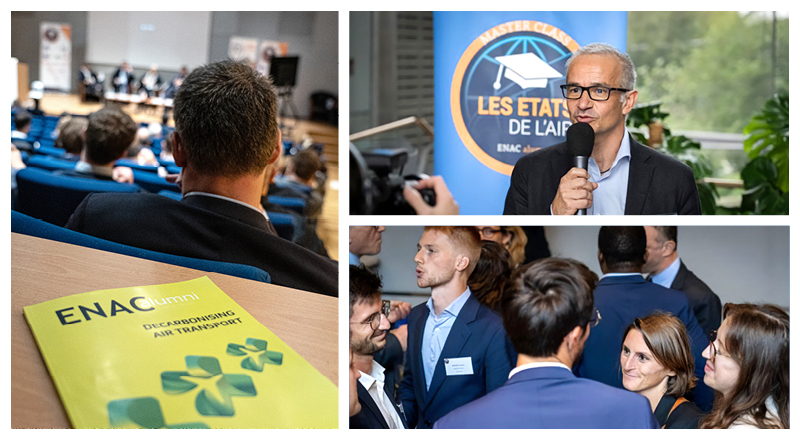The 4th edition of the « Etats de l’Air » was held at the DGAC headquarters in Paris, organised by ENAC Alumni, the alumni association of the Ecole Nationale de l’Aviation Civile, which brings together no fewer than 28,000 alumni worldwide!

Image © ENAC Alumni
Use of data and artificial intelligence for aviation purpose
At the heart of this 4th edition of the “Etats de l’Air”, digitalisation and decarbonisation took center stage. A theme addressed by Marc Houalla, President of the ENAC Alumni, in his introductory speech: « Despite the rebound in air transport in 2023, a large number of challenges will have to be met by the major players in aviation. This is particularly true of digitalisation and, of course, decarbonisation ».

Gate.31 has chosen to look back on this day of conferences with a focus on the use of data and artificial intelligence in aviation and the contribution of the company OpenAirlines.
Reducing fuel consumption and CO2 emissions
Based in Toulouse (France), OpenAirlines is one of the companies whose innovative activities are having a real and tangible impact for sustainable aviation. « We help airlines reduce their fuel consumption and CO2 emissions by processing all the data from their black boxes (and other sources such as weather, air traffic control, maintenance, etc.) ». Alexandre Feray, Founder and CEO OpenAirlines.

The SkyBreathe eco-flying software, developed by the French SME and certified by the Solar Impulse Foundation, uses Big Data algorithms to analyse billions of pieces of data and identify opportunities to save fuel and reduce CO2 emissions.
« SkyBreathe can reduce fuel consumption and CO2 emissions by up to 5%. This is a strategic focus for airlines since fuel accounts for around 30% of their direct operating costs. As an example, Norwegian saves 2% fuel per year, representing a saving of USD 27 million and a reduction of 140,000 tonnes of CO2.
An increasingly sophisticated offering thanks to AI and Deep Learning
« By analysing the data collected, we provide targeted recommendations. These recommendations can relate to aircraft preparation (e.g. impact of engine cleaning), flight preparation (e.g. choice of routes depending on the weather, congestion) but also to the execution of the flight by recommending continuous descent, use or non-use of thrust reversers, etc. And we want to go even further by developing algorithms that learn from the data and improve automatically, by identifying all the causes of over-consumption of a flight, and by making trend predictions. We are also developing and marketing a version of our on-board cockpit software that can give pilots recommendations in real time.
The ENAC Alumni network and aviation issues
As we have seen, the heart of the ENAC Alumni network beats to the rhythm of the news and the challenges of the aviation sector. Throughout the year, the association organises events, conferences, and training courses to help professionals in the aeronautics, space, air transport and related industries to improve their skills. It has set up numerous ENAC Alumni chapters abroad as well as in major aeronautical and air transport companies. All ENAC Alumni initiatives aim to contribute to the development and evolution of aeronautics and air transport in France and abroad!

As a member of the ENAC Alumni, the Gate.31 editorial team invites you to discover the agenda of the association’s forthcoming events (events open to non-members) and looks forward to meeting you there!

